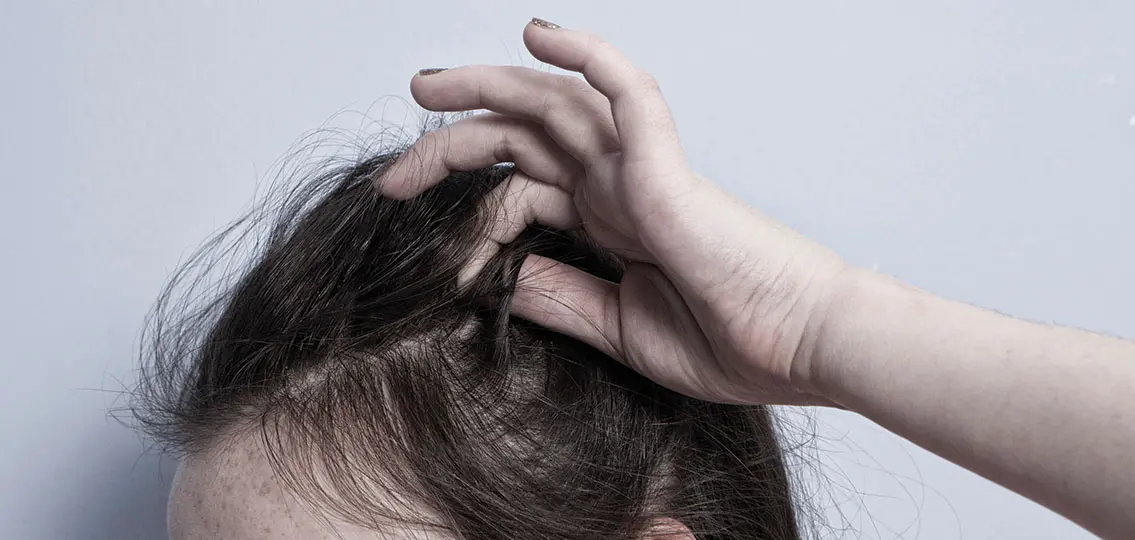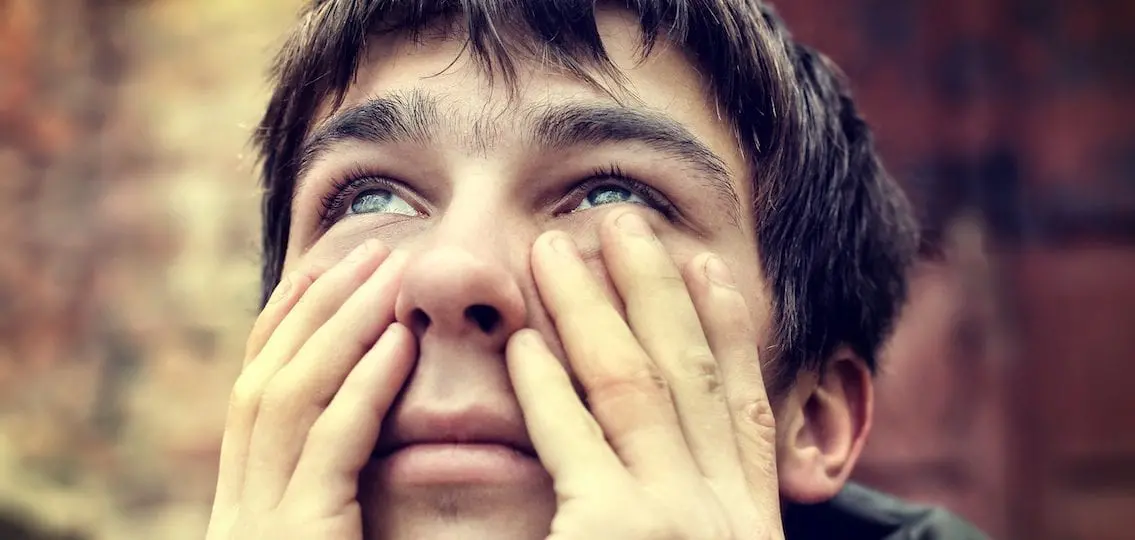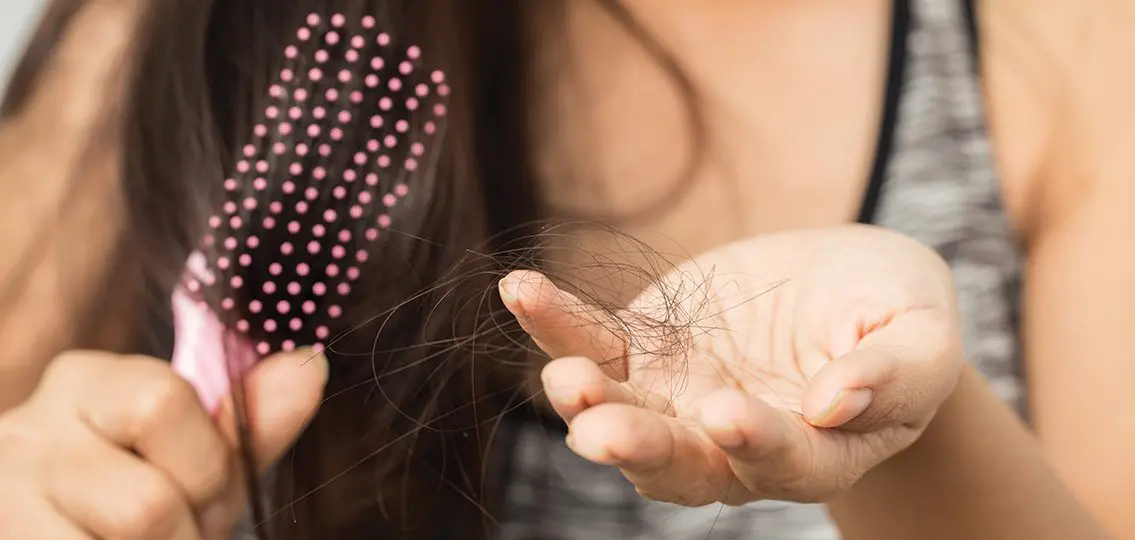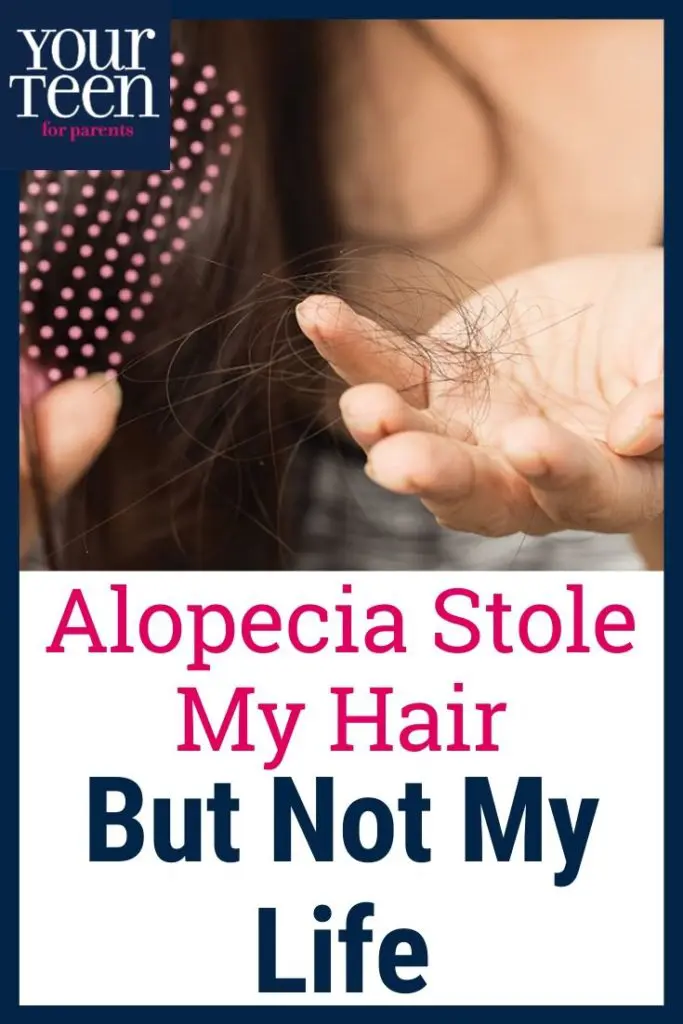Going bald during the self-conscious adolescent years can be a teen girl’s nightmare. But teenagers can get through feeling (and looking) different.

TEEN | Devon Carrow
During my junior year of high school, I helplessly watched as my hair fell out each day. It took me from a full head of hair to completely bald in a matter of months. I was already struggling with the typical high school load of balancing school, friends, and my personal life—and then, when I was 16, I was diagnosed with alopecia. Alopecia is an autoimmune disease in which your body attacks your hair follicles, causing them to fall out.
I Have Alopecia
Suddenly, I was so anxious to go to school, worried that someone would notice my balding head, point it out, and make fun of me. By senior year, I was wearing a wig. I felt extremely self-conscious and was constantly worried about how I appeared to others. I remember being so thankful that my dad drove me to school every day—I felt safer being in the car with my dad, rather than on the school bus susceptible to the stares of kids. When I rode the bus, I feared the slightest bump in the road or the bus driver opening the window would shift my wig.
Upon arriving to school, I would spend my time hiding out in the bathroom. Eventually I’d go into class at the very last second. When I came home from school, I would be so emotionally and physically exhausted that I would go straight to bed, only waking up for dinner and homework.
Years later, I realize those feelings of self-doubt were a waste of my time and energy.
Now that I am older, I am more confident in myself and the medical issues I have dealt with. I realize that the struggles I have faced have helped me become the young woman I am today. For instance, I used my experience with alopecia as a platform to start my positivity organization, The Love Spreader. I probably never would have created an online platform had it not been for my hair loss.
I am also extremely grateful to my parents. Not only did they drive me to school every day and greet me as I came home from school, easing my worries and anxiety, but they also helped me find wigs and drove me to every doctor’s appointment. They were ready to drop everything to offer me a pep talk and a shoulder to cry on. They let me know that no matter what happens, I can rely on them for love and support.
Devon Carrow is the founder of The Love Spreader (devoncarrow.com) and the author of Happy As I Am. She is currently a master’s degree student and enjoys reading, writing, painting, and spending time with her husband, friends, and family.
PARENT | Jon Carrow
“We can’t control what happens to us in life… but we can control how we respond to it.”
This is a favorite saying of mine. And it was the first one that came to my mind when I realized the true extent of the challenge ahead for my family.
When my daughter Devon was first diagnosed with alopecia, I said things like, “It won’t be that bad—it won’t spread beyond a small bald spot,” and, “We can seek help from people who have experience in ‘fixing’ this.”
Next, I shifted to a brief phase of just being angry that this was happening to my daughter. But soon I learned that while my anger was natural, it ultimately accomplished nothing.
Shortly after that, the real path forward became clear—acceptance.
But challenges like encouraging self-confidence, helping your kids deal with bullies, and making sure that your kids know that they will be okay become even more challenging when there are wigs involved.
I wanted Devon to learn (sincerely and deep down) that beauty, confidence, and character come from what’s inside of you and not from what’s on your head. Early on, I spoke with my daughter about how sharing her story (vs. trying to hide her condition) would be helpful to others. I thought that having a sense of purpose would be a help to her as well.
As time has passed, I’ve seen a scared (and at times angry and depressed) teen become a confident young lady. I have seen the confusion of those first years subside as mature friends—ones who really didn’t care if Devon’s hair was real, a wig, or not even there—replaced the “surface” ones who thought that pimples were a crisis and who couldn’t handle Devon’s hair loss.
I’ve seen my daughter learn how to stand up to (or simply disconnect from) bullies while becoming a source of support to others. I watched her graduate from college and marry a very intelligent and caring young guy.
I will admit that there have been times when I’ve caught myself looking at a stranger’s hair, wishing I could magically give it to my daughter. But while this chapter of our story hasn’t always been smooth or without tears and false starts, I knew it was my job to be the confidence that alopecia tried to steal from my daughter. Together, we turned negative energy into a positive experience.
Jon has worked at several large corporations over his 30-plus-year career. At home on his family’s suburban-Philadelphia farm, he gets his inspiration and energy from his wife of 30 years, Heidi, his two awesome daughters, Chloe and Devon, and their four-legged family member, Callie.
EXPERT | Tori Cordiano
Of the many challenges that parents face, one that rises to the top is the pain a parent feels when his child is suffering.
What parent hasn’t wished they could swap places with their child to take on their struggles instead?
Putting aside the impossibility of that desire, doing so would also rob children of the opportunity to develop resilience, strengthen their self-confidence, and persevere through challenges. There is no substitute for the fortitude that emerges from coping with these struggles. Even though the difficulties remain the child’s own, parents can provide invaluable support, perspective, and resources to help teenagers manage whatever comes their way.
As this father expressed, a parent’s first instinct is often an attempt to “fix” a difficult situation. Of course, this can rarely be done. And it might actually skip past one of a parent’s most important roles—that of the nonjudgmental listener. It’s immeasurably powerful for teenagers to hear, “I’m here if you want to talk. If you want to vent, I can keep quiet and listen. If you want my help to problem-solve, we can do that too. I can’t fix this for you. But I will be right by your side.” The beauty of this lies in its honesty—parents can’t always fix the situation or even make it much better for their child. But they can make good on a promise to stand by their side.
Devon’s father highlights how Devon sharing her story was powerful for her and helpful to others.
Research tells us that having a sense of purpose—something that is meaningful to the self and is of consequence to the broader world—strengthens a teenager’s sense of identity and boosts her ability to cope with stress. By encouraging them to explore activities that make meaning out of difficulty, parents can support adolescents as they develop their own sense of purpose.

Finally, Devon’s story of teenage hairloss and embarrassment underscores the importance of relationships in resilience. Parents can help teenagers recognize this, whether by connecting them to others who share a similar challenge, encouraging them to maintain healthy friendships, or simply being a constant source of confirmation that what matters most is not the challenges they face, but the grace with which they manage them.
Tori Cordiano, Ph.D., is a clinical psychologist in Beachwood, Ohio, a consulting psychologist for Laurel School, and the Director of Research for Laurel School’s Center for Research on Girls.





